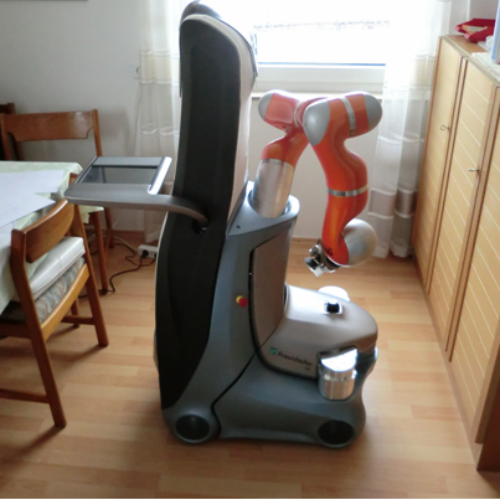Severity: Warning
Message: session_start(): Failed to initialize storage module: user (path: /var/www/session)
Filename: Session/Session.php
Line Number: 143
 Robot in action
Robot in action
Dr. Renxi Qiu is a robotics expert at the University of Bedfordshire,UK, who led the SRS (Shadow Robotic System) project, which developed a service robot to assist elderly people live in their own homes. The robot can follow instructions but also can be operated remotely by carers or family members if need be.
How did you become interested in the idea of robots helping the elderly?
My background is in control technology and in software development. I work in the UK, but my parents are still in China. I could speak to them by phone for an hour, but still couldn’t solve some problems they had at home. I had to wait until I went back home to solve it for them, and I fancied some kind of device that I could use to help them while away. If I could develop such a robotic system, I could help people who can’t live with their parents still give their parents a better life using technology.
Does it matter what a home help robot might look like?
We tested the Care-O-bot with SRS software in different countries and got different responses. Most wanted the robot to be smaller than the human next to them, more the size of a child, whereas our robot was adult sized. Most were happy that the robot did not look like a human.
Did people feel comfortable having a robot helper in their home?
We thought we might have problems like privacy concerns or that people might feel hostile to this technology. But this never happened in our tests. People are keen to find out what is possible and how this can help them in their lives. Older people reacted positively. They thought of it as a useful gadget.
Could the robot take care of elderly people with dementia?
We didn’t put memory support training to help people with dementia in our latest robot but we feel that later on this is something we could do. The robot could not only give people cognitive support and information, but it could help with loss of confidence. Older adults when they cannot take care of their pet or change the TV channel can lose confidence and our robot could help them with specific tasks and give them a more positive view of themselves. It could also help them socialise by offering physical support and help them walk when tired.
When might we have armies of these robots to help us?
The robot is too expensive right now. So our key focus is to reduce the cost. We will use new technology to do this over the next 5 to 10 years and maybe in 20 years they will be affordable for someone to buy. But this could move a lot faster if there was more support from governments. Perhaps we could see trials of them in many people’s homes within ten years.
Share this page: